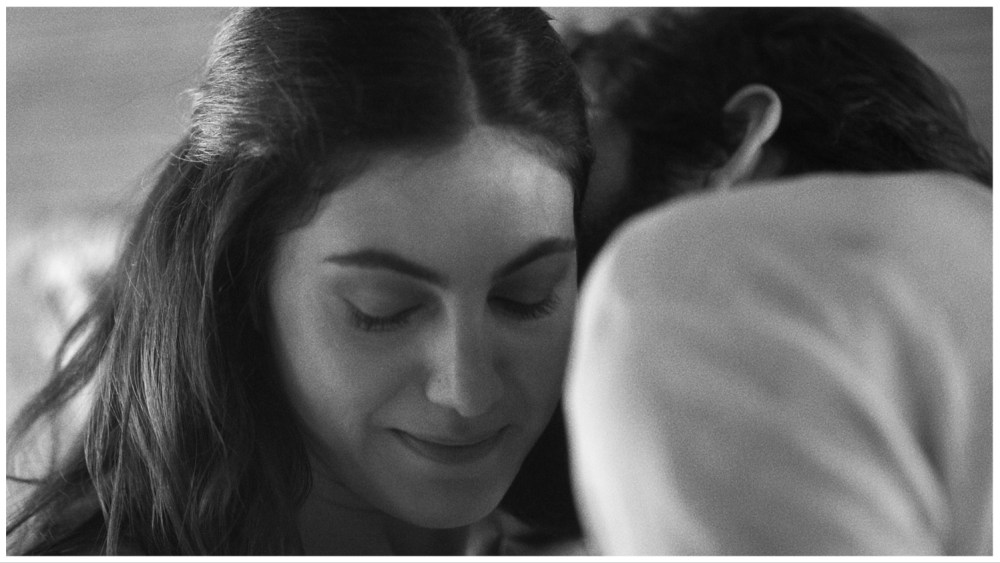O2 Play Nabs Marcelo Gomes’ ‘Portrait of a Certain Orient’
Marcelo Gomes’ new film “Portrait of a Certain Orient” will be represented for world sales by Brazil’s O2 Play. The deal was sealed ahead of the film’s premiere at the International Film Festival Rotterdam, where it plays as part of the Big Screen Competition.
O2 Play is the distribution arm of O2 Filmes group, a production, post-production and advertising company owned by Fernando Meirelles, the Oscar-nominated director behind “City of God,” “The Constant Gardener” and “The Two Popes.” Meirelles heads the company alongside Andrea Barata and Paulo Morelli. Founded by Igor Kupstas in 2013, O2 Play has theatrically released over a hundred films in Brazil, including Ryusuke Hamaguchi’s “Drive My Car,” Martin Scorsese’s “The Irishman” and, most recently, Sofia Coppola’s “Priscilla.”
Gomes, whose 2005 feature debut “Cinema, Aspirins and Vultures” was funded by IFFR’s Hubert Bals Fund, returns to the festival with his eighth feature, an adaptation of eminent Brazilian-Lebanese writer Milton Hatoum’s eponymous 1989 novel about a trio of Lebanese immigrants heading to Brazil.
Gomes said: “In my film, I try to show that the only way to deconstruct prejudices is by viewing the world through the eyes of others as an antidote to fanaticism. In view of the many crises engulfing us around the world that seems more important today than ever.”
Igor Kuptsas, director of O2 Play, said: “Marcelo’s body of work is proof that he is one of the most renowned Brazilian filmmakers working today, and his sensitive and incisive treatment of questions of migration and belonging go to the heart of one of today’s most pressing global issues in a family saga that is universally relatable.”
Speaking exclusively to Variety ahead of the film’s premiere, Gomes says he was attracted to Hatoum’s novel due to it being “unfilmable,” going on to explain he appreciated the idea of adapting a book featuring several streams of consciousness. The story, which follows two Catholic Lebanese siblings who meet a Muslim Lebanese man on a boat to Brazil, felt like a “puzzle” to the “Joaquim” director.

Marcelo Gomes
Courtesy of Getty
“I wanted to show the Amazon through the eyes of someone who had never been there, to show Brazil from the perspective of a foreigner. My first film is about a foreigner in the northeast of Brazil and I think that film made me understand my country better than any other films,” he added. “I love the thought of someone coming from the Middle East, from the desert, and landing in the Amazon.”
The director went on to describe the making of a film as a “saga.” “This film is a miracle! We were three days into shooting when we had to stop because of the pandemic. We all went back home and had to raise money again later on to restart production.” Still, even with the difficulties, Gomes managed to produce a film in several languages including Arabic, French and the Tucano Indigenous language, and featuring an international cast including Wafa’a Celine Halawi, Charbel Kamel, Zakaria Al Kaakour and Eros Galbiati.
This was vital to the director because, in the book, the Brazilian city of Manaus is described as a Babylon, with immigrants coming from countries such as Spain, Portugal and Lebanon to work in the region’s many plantations and factories. “It was a very cosmopolitan city, so I thought this film needed to be in multiple languages,” said Gomes. “I had to invite Lebanese actors because I needed actors speaking in their language and their own accents and I also wanted actors who had never seen the country with their own eyes. I thought this would give a truth to the film that was very important.”
Of broaching contemporary issues such as land demarcation and immigration in a period film, the director said: “Immigrants want a place to call home. This is a problem we have in Brazil. In the Amazon, farmers want to steal the land from the natives. The book was written in 1981, but I am a person living in 2024 and touched by the issues that are going on around me. I had to include Indigenous issues in the film, I had to mention the Middle East issues in the film and the immigration crisis.”
Premiering the film in Rotterdam has a special meaning to Gomes, who claims the festival to be “the most important of my career.” “I have shown my shorts there and, when I was developing the script for my first feature back in the late 90s, I had no money. So I applied for the Hubert Bals Fund and received the grant. Because of that grant, I wrote the script, applied for other grants, succeeded to make my film and then presented it at Cannes. The festival is like my mother.”
“Portrait of a Certain Orient” will premiere at IFFR on Jan. 27.

